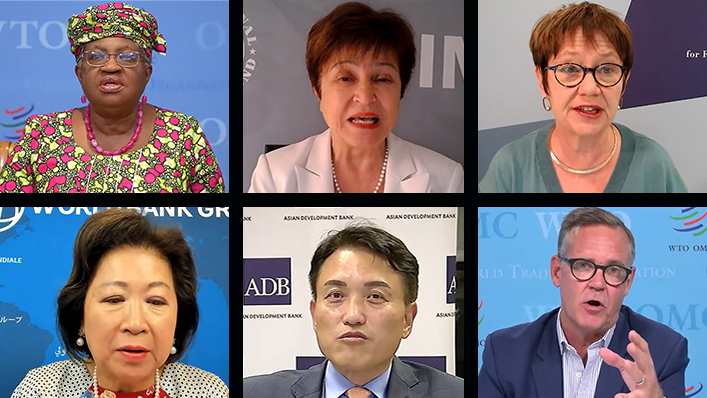FAO, IMF, WTO, World Bank raise alarm over food crisis
The World Food Programme (WFP), World Bank Group (WBG), International Monetary Fund (IMF), and World Trade Organization (WTO) all support taking swift action to alleviate the world food crisis.
AO Director-General, Qu Dongyu; IMF Managing Director, Kristalina Georgieva; WBG President, David Malpass; WFP Executive Director, David Beasley, and WTO Director-General, Ngozi Okonjo-Iweala issued a joint statement on Wednesday.
The heads underlined that the food security and nutrition issue is still becoming worse as a result of the conflict in Ukraine, which has increased price volatility for energy, food, and fertilizer.
They claimed that despite the drop in food prices and the restart of grain exports from the Black Sea, many people still couldn’t afford to eat because of the high cost of food.
Fertilizer markets continued to be unstable, particularly in Europe where a lack of natural gas supply and high pricing led many urea and ammonia manufacturers to cease production.
The organizations applauded the Global Crisis Response Group and the Black Sea Grain Initiative for their work in assisting Ukraine in exporting three million metric tons of grain and other goods.
As part of its efforts, the World Bank is implementing its $30 billion programme to respond to the food security crisis and front-loading resources from the IDA20 Crisis Response Window.
Also, the IMF is proposing a new food shock window within its emergency lending instruments.
The FAO has proposed policy recommendations and launched detailed soil nutrition maps at the country level to increase efficiency in using fertilisers.
The statement urged governments to provide data and resources to support Agricultural Market Information System to enhance transparency in food markets.
It emphasized the importance of tackling input supply constraints as well as infrastructure obstacles in order to ensure an effective food supply chain.
“We remain committed to working together to address immediate food security and nutrition needs, tackle structural market issues that may exacerbate adverse impacts, and build countries’ resilience to prevent and mitigate the impacts of future.
“Effective and sustainable support to smallholder farmers will be vital to ensure they are part of the solution and to localise supply chains,” the officials added.













